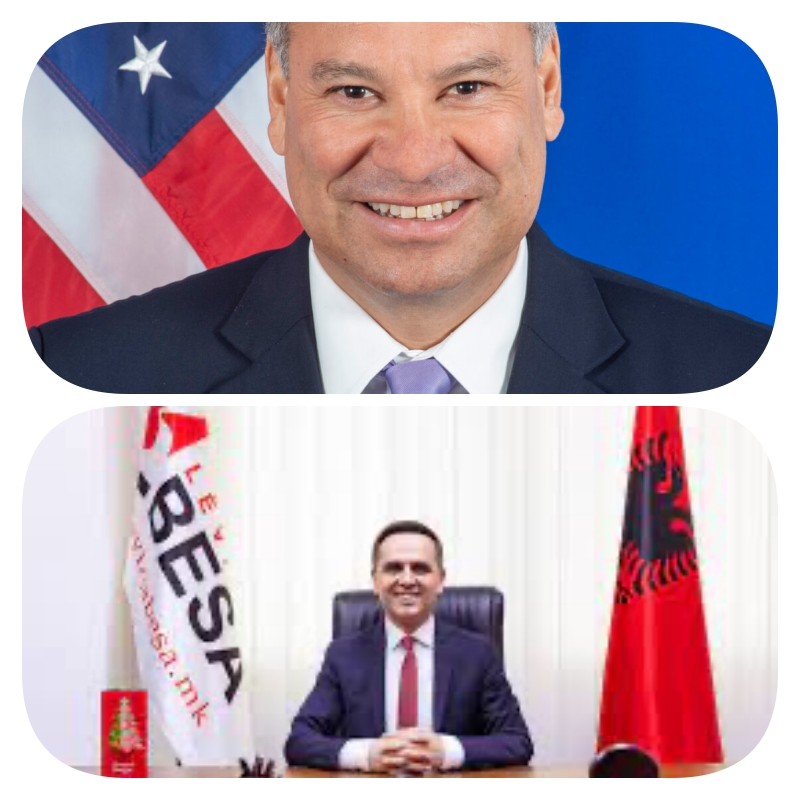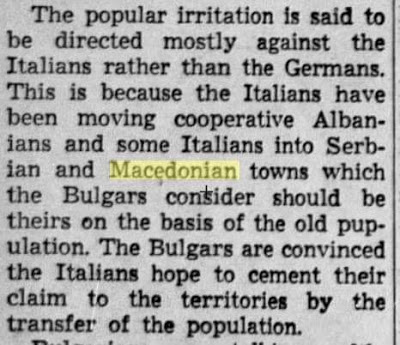
Analysis / Opinion:
Sasha Uzunov
– Editor, Alternate Comms
The Dardania theory of “Albanian antiquity” in Macedonia peddled by extremist Albanian nationalist in Macedonia Bilal Kasami seems to be built on very shaky ground; it would appear to be no older than 1943 and a Fascist Italian inspired idea too!
Kasami, who is mayor of Tetovo a predominately ethnic Albanian town in western Macedonia, like other Albanian nationalists believes that Albanians are the indigenous people of Macedonia pushed out by invading Slavs in the 6th or 7th century CE.
The evidence that has emerged is during WWII Fascist Italy, which occupied the Kingdom of Albania and a large slice of western Macedonia, deliberately moved Albanian colonial settlers into western Macedonia to ethnically cleanse Macedonians and takeover the region. In that war, Bulgaria also occupied a very large chunk of Macedonia and staked a rival claim on the origins of the Macedonians.

Respected academics such as Dr Florin Curta maintain there was no “Slav migration” to the Balkans. As to Bulgarian claims on Macedonian history, other evidence points to Macedonian identity being separate to a Bulgarian one.
Be that as it may, what is apparent is the US has for a long time been a supporter of Albanian extremist ideology. It endorses leaders such as Ali Ahmeti who glorify WWII Albanian Nazi quisling militia known as the Balli Kombetar, who were used by Fascist Italy to ethnic cleanse Macedonians.
In 2001 Ahmeti started a war in Macedonia along the same lines declaring he wanted to remove “slav” forces from the region.
On top of that the US has now become a vocal supporter of Bulgaria’s blackmail of Macedonia, which means Macedonia must surrender its history, identity, not mention too loudly Bulgaria’s role in the Holocaust of Jews and so on, in order for Bulgaria to remove its veto of Macedonia joining the European Union.
One of the loudest voices is US State Department mandarin Gabriel “Pablo” Escobar who refers to Macedonians as “Orthodox people” – refusing to call them by their real identity.
The US was the main driver behind the Prespa Agreement, signed with Greece in 2018, which removed Greek ban on Macedonia entering NATO & the EU but at a massive cost of losing the country’s name, identity and emboldening Bulgaria to keep making demands.
In 2017 a so called Good-neighbourly Agreement was signed between Bulgaria and Macedonia, once again instigated by the US.
And recently, a French proposal sponsored by France’s President Macron requires, strong arms, Macedonia into changing its constitution to include Bulgarians, even though their rights are already protected as a minority. This is seen as an attempt to destablise the country from within by using the constitution to push for unjustified demands that can never be met
What does all this mean for Macedonia in the long term? In all probability partition between an Albanian state entity in the West and Bulgaria in the East. Two new highways are being built in western Macedonia by US construction giant Bechtel, which won the contract under suspicious circumstances and has a long history with working with the CIA.
Many see this as setting up the process of partitioning the country because the roads roughly correspond to territory claimed by Greater Albania proponents. The US Embassies persistent refusal to condemn WWII Albanian Nazi statues in Macedonia, built post 2006, which symbolise a Greater Albania only adds fuel to the fire of suspicion over the US role in Macedonia
There are four US bases in Bulgaria; a large naval base on the Greek island of Crete used by the US and NATO to police the Mediterranean. There is the large US military base, Bondsteel, in Kosovo. Macedonia’s territory is of interest to the US in so much as to deny so called Russian and Chinese “interference.” US has no concern for the survival of a Macedonian identity which opposes the interests of its “allies” Greece, Bulgaria, Albania and Kosovo.